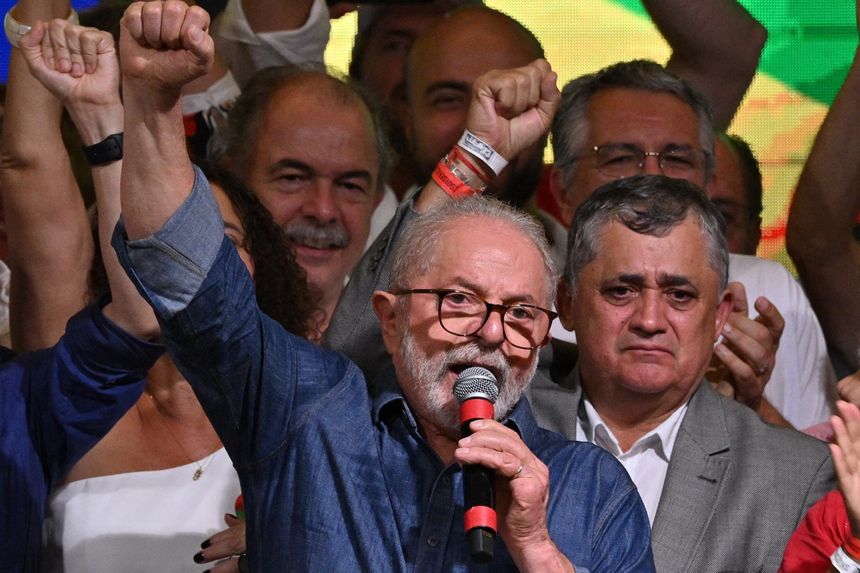Elected Brazilian President Luiz Inácio “Lula” da Silva speaks in Sao Paulo, Oct. 30.
Photo:
nelson almeida/Agence France-Presse/Getty Images
Brazilians elected
Luiz Inácio
“Lula” da Silva to the presidency again on Sunday, ousting incumbent
Jair Bolsonaro
by less than 2% of the vote. Latin America’s largest country is gambling again on left-wing populism that has failed so often in the past.
Mr. da Silva, who served two presidential terms from 2003-2010, won with his appeals to the poor despite his conviction for corruption. Before his Workers’ Party (PT) ceded power in 2016, it orchestrated the largest corruption scheme in Latin American history, using the national development bank, the state-owned oil company, Congress and private contractors. The money machine was designed to entrench his party in power.
Mr. da Silva and his accomplices were caught only because prosecutors found a money trail, and an honest judge allowed them to follow it—a minor miracle given Brazilian history. Lula’s 2017 corruption conviction was overturned on a technicality but he was never exonerated.
Mr. Bolsonaro owes his failure to win a second term to bad luck and his own political malpractice. He entered office as a disrupter seeking to reverse years of famous Brazilian underperformance. This meant major change, and he needed to persuade a powerful and pragmatic Congress to go along. Too often he alienated it.
The pandemic made change harder, but his government achieved significant deregulation and fiscal reform. He spent liberally to sustain businesses and households during peak Covid-19, but he later cut spending by paring credit subsidies to agriculture and industry, slowing the growth of social assistance and reducing government payrolls. Fiscal restraint took pressure off the central bank, and inflation has been coming down. At about 7% it’s now lower than in the U.S.
Mr. Bolsonaro had a good economic…
Click Here to Read the Full Original Article at RSSOpinion…

